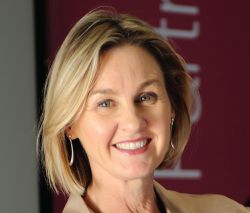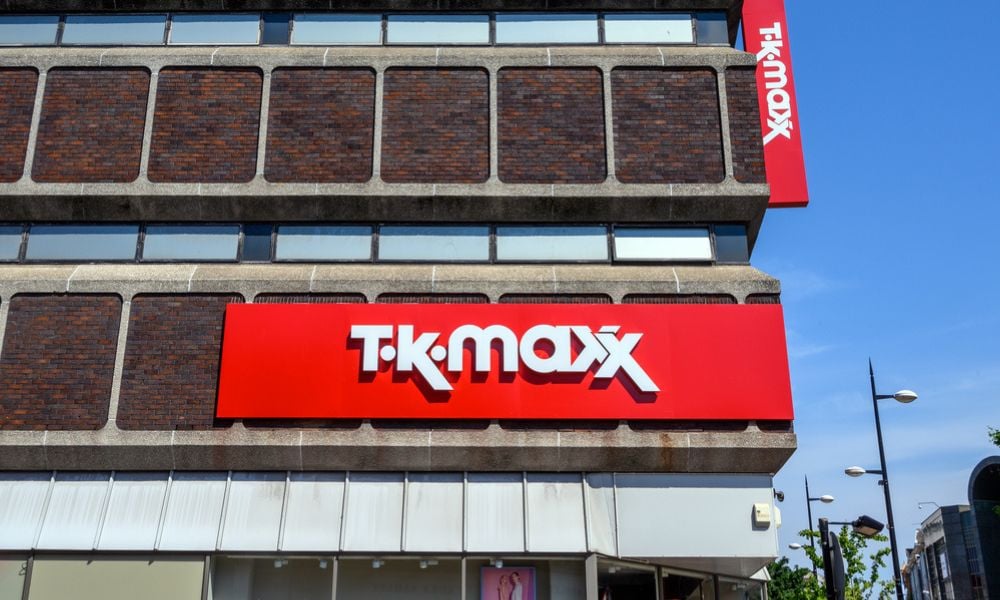Cindy Reid, Konica Minolta’s Australian head of HR, reflects upon balancing the humanitarian and commercial aspects of HR, lessons learnt from bad leaders, and how she is preparing for a massive transformation project
 Cindy Reid, Konica Minolta’s Australian head of HR, reflects upon balancing the humanitarian and commercial aspects of HR, lessons learnt from bad leaders, and how she is preparing for a massive transformation project
Cindy Reid, Konica Minolta’s Australian head of HR, reflects upon balancing the humanitarian and commercial aspects of HR, lessons learnt from bad leaders, and how she is preparing for a massive transformation project
HR Director: Konica Minolta is about to launch a signifi cant transformation project. What sort of transformation is it?
Cindy Reid: Traditionally the copier industry is all about hardware sales and service. It’s very focused on machines in the field (MIF). The margins are decreasing significantly to the point where you can’t make a lot of money solely out of copier machines. In addition, the cost of doing business has gone up. We need to do something that complements our current business, that sits with our current skillset and capabilities, but stretches us a little bit away from what we’re currently doing. We need to shift from a hardware focus and expand to a software and solutions focus.
HRD: You’ve just started recently at Konica Minolta. What are your expectations of the role, especially given the significant transformation project you have in front of you?
CR: I’m in that uncomfortable stage where I’m moving from unconscious incompetence – I don’t know what I don’t know – towards being conscious of what I don’t know. And that is, essentially, the challenge of transforming a business and formulating the people agenda to support that change.
HRD: Being new to the role, there must be a lot to learn?
CR: There are lots of surprises coming at me. I’m learning about the business and its history. In my first 100 days I want to be able to develop a HR strategic plan. I’ve been spending time in our branches across Australia, I’ve been doing ride-alongs with our service engineers and sales people, so I can live and breathe our critical roles in this business. I’m developing relationships with the people, my team, and the leadership team, and making sure I understand the business strategy and objectives from each of their perspectives. I want to be a trusted adviser to the leadership team.
HRD: Is there a timeframe around the project?
CR: In two years we need to look like and feel like and be working as a business that is quite different to what we are today. We need to be fitter, faster and we need to grow.
HRD: You have managed similar projects in other roles at IBM and elsewhere. Can you apply anything from these experiences to Konica Minolta?
CR: It’s the concept of excellence. Everything I do and everything I work with our business on focuses on being excellent in what we do. What guides me in my decisions is an understanding of the moral or humanitarian perspective: what’s the right thing to do in terms of our customers, our employees and our community? Then I will go to the commercial perspective of what’s the right thing to do for the business: the financials. I often talk about head and heart. People who know me will know I’m always saying, ‘well, this feels fair and reasonable’, and that’s the humanitarian side of me, but I also know we need to be a very agile business in order to grow. That’s me; that’s my personal brand.
HRD: Do you think CEOs expect that moral, humanitarian side from their HRDs – perhaps they don’t get it from other execs?
CR: I’ve done some work with Andrea Grant [formerly group HR director, Telstra] who now runs HR Ingenuity. She recently interviewed a number of CEOs and HRDs, and the feedback from CEOs was this: I picked my HRD to be a good, strong, commercial thinker. They need to have the same attributes as any business leader. But at the same time, I need them to be fulfilling the humanitarian role. I look to them to know when they will be tough on the commercial front, and warm and caring on the other hand. Some CEOs might suggest the pendulum went a little bit too far with HRDs. This isn’t my personal view, but there’s a perception that HR leaders went too far towards being business savvy and now the pendulum has to come back. I believe we’re still trying to get the right balance between commercial pragmatism and the humanitarian role.
HRD: What’s been your best experience in HR?
CR: At IBM we formed IBM Global Services Australia with Telstra and Lend Lease through a joint venture. The buzz out of forming a new business that totally transformed what IBM was known for in the market was awesome – but it was backbreaking work.
HRD: And your worst?
CR: It’s the experience we all dread; working for a leader who isn’t a good leader. People leave companies mainly because they work for a leader who isn’t competent or commercial or compassionate or present. They are fantastic experiences in a way because these are learning moments to reflect on and you can say: ‘Hang on, how am I doing as a leader, what are we developing here at Konica Minolta?’
HRD: What advice you would give to a person just entering HR?
CR: My best professional advice would be, ‘be who you are’. If you are being who you are, then you will be motivated to do a good job. For me, it’s that balance between the commercial and the compassion. People who go into HR thinking it’s going to be glamorous or touchy-feely because you’re doing the people side of things, it’s not that. It’s about being a business leader, and if you can be who you are by balancing compassion and commerciality, then HR is an outstanding business discipline to build your career.
This feature is from HRD's June 2014 issue #12.06. Please click on the link to purchase.








